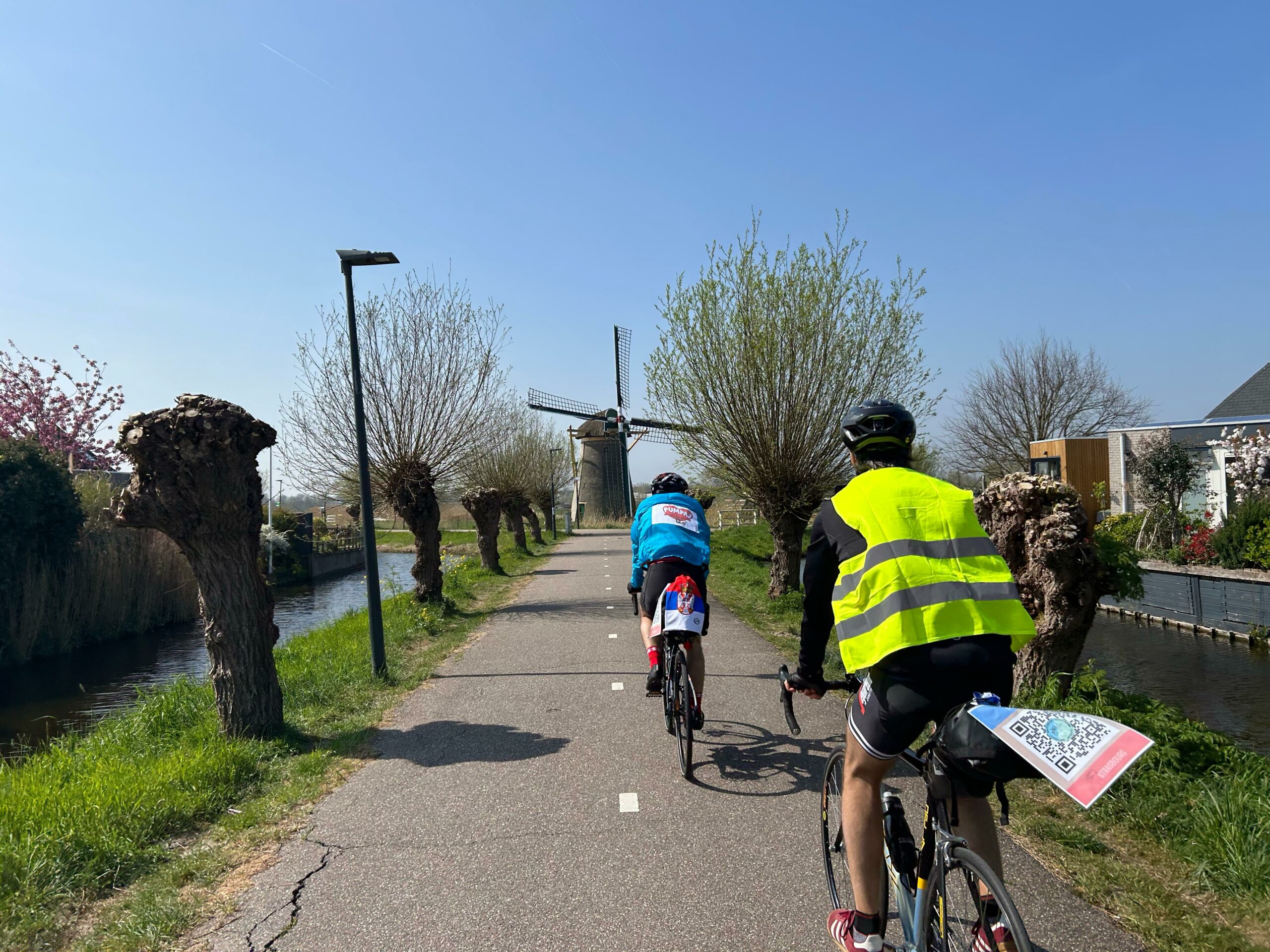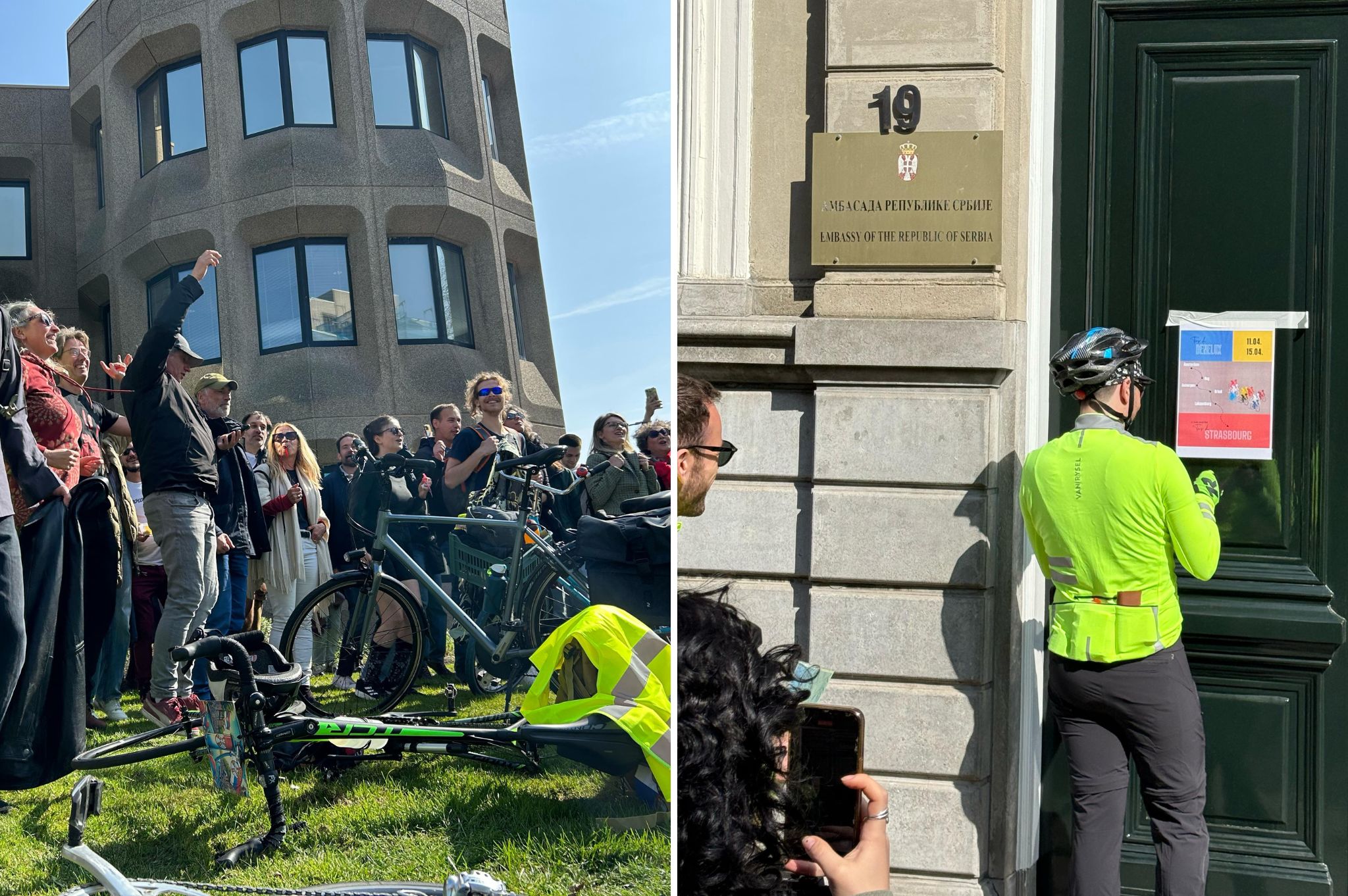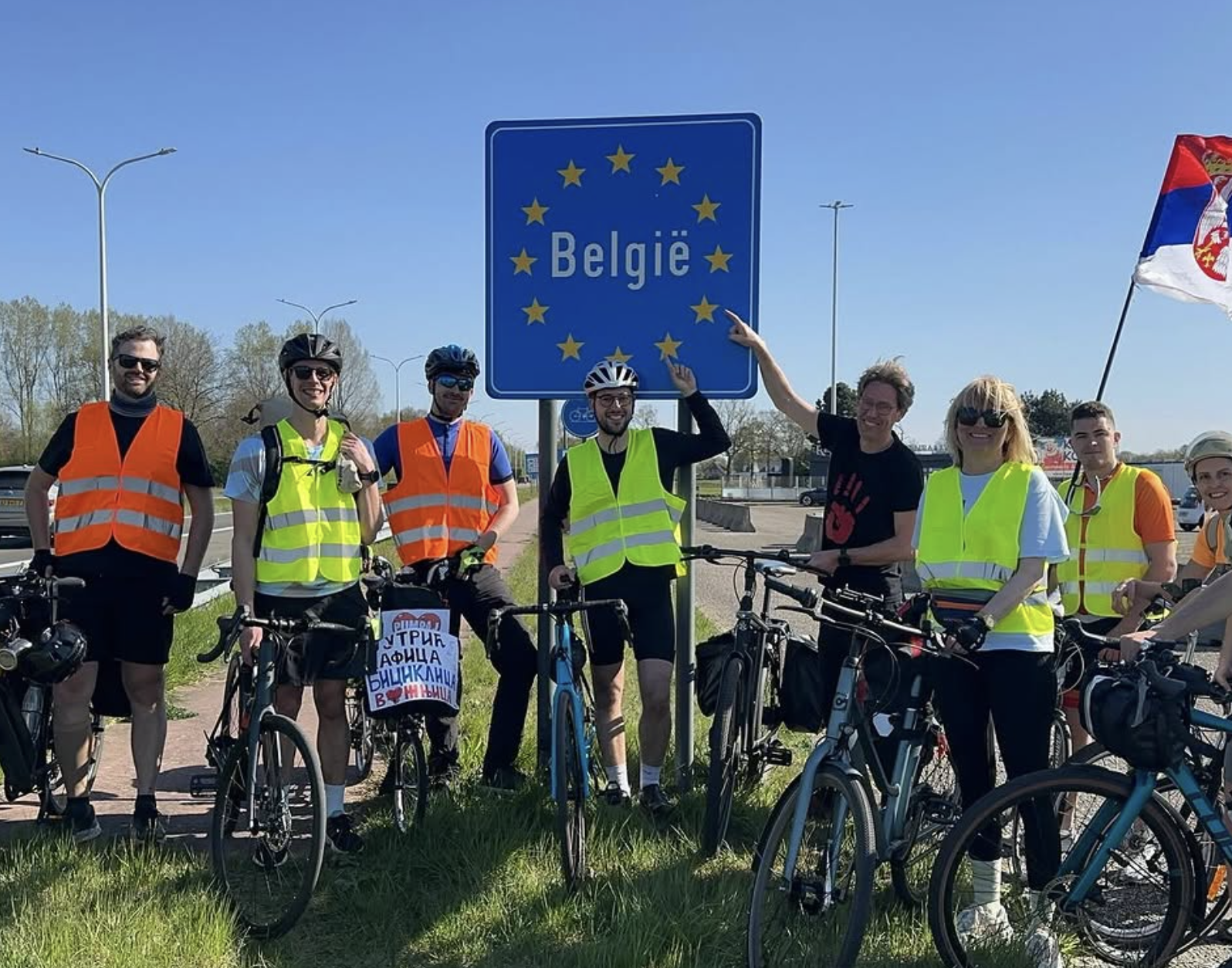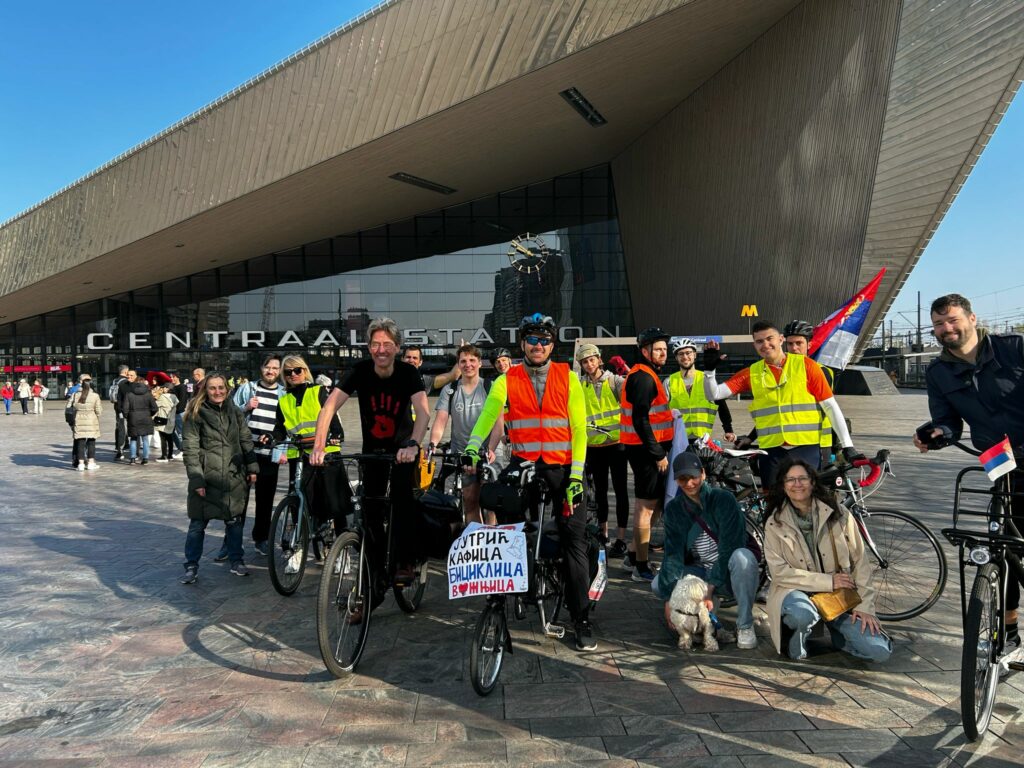A group of Benelux-based Serbian nationals will join a large student-led bicycle ride from Serbia to the European Parliament in Strasbourg to call on the EU to respond to the growing repression by Belgrade.
Over the last months, widespread protests have erupted against Serbian President Aleksandar Vučić and his government, following the death of sixteen people after a train station canopy collapsed in Serbia’s second-largest city, Novi Sad, on 1 November 2024.
Pressure on Vučić's Progressive Party has grown amid allegations of corruption and corner-cutting. The train station had been renovated from 2021 to 2024, with support from China’s Belt and Road initiative. Opaque deals made with Chinese contractors are among the key accusations against the Serbian government.
'Batons, not answers'
Since the protest movement was launched by students in November, the government has brutally repressed it. "We must fight against anarcho-terrorists, fake commie intellectuals, the pseudo-elite that is ravaging Serbia with anti-Serbian attitudes," said Progressive Party MP Vladimir Đukanović.
Protestors say the government is indifferent to citizens’ safety and needs, responding with violence and not justice when citizens come with answers. "Instead of getting answers, we got batons. Instead of dialogue, we got censorship," a statement by organisers read.

Benelux-based Serbian diaspora cycling to Strasbourg to call out government repression, April 2025. Credit: Palac Gore
President Vučić is also facing international pressure over violent protest repression, notably after videos emerged online appearing to show police using a sonic weapon, also known as a military-grade Long Range Acoustic Device (LRAD) or "sonic cannon", to disperse protestors.
While even the European Court of Human Rights (ECHR) has requested more information, the government has denied all allegations. Online videos show visibly distressed protestors running away at the exact same moment and in the same direction.
'A journey of resistance'
Faced with this growing repression, a 1,300 km cycle ride was organised from Novi Sad to Strasbourg by 80 Serbian students. Strasbourg is also the seat of the ECHR.
The cyclists hope to draw attention to their student protest movement (and repression) with the cycling action.

Cyclists meeting fellow protestors and posting a flyer on the Embassy of Serbia in The Hague. Credit: Palac Gore
"We, the students of Serbia, did not embark on this journey on a whim. We set out because we have nowhere else to go," a statement reads. "Our streets are filled with fear, our institutions silenced. This trip is more than a bike tour – it is a journey of hope, resistance, and the voices of the silenced."
Their demands include calling on the EU to acknowledge a number of issues in the country: the arrests and intimidation of student activists, the use of illegal crowd control weapons, targeted attacks on professors and other university staff, as well as the intensified media censorship.
A group of Serbian nationals living in Belgium, the Netherlands and Luxembourg joined the cycle in solidarity, alongside Belgian and Dutch allies, known as the Tour of Benelux. They are riding 626 km from Amsterdam to Strasbourg via Brussels and Antwerp.

Benelux-based Serbian diaspora cycling to Strasbourg to call out government repression, April 2025. Credit: Palac Gore
The group left from the University of Amsterdam at 09:00 on Friday (11 April), with a stop by the Serbian Embassy in The Hague. On Saturday, they were in Antwerp for a public gathering outside the MAS Museum, before having arriving in Brussels on Sunday to take part in a protest at Place Luxembourg.
On Tuesday (15 April), the Benelux bikers will join the main cohort of two-wheeled protestors at the finish line in Strasbourg. Other solidarity rides were organised by the Serbian diaspora from Copenhagen, Basel and Bonn.
The Benelux ride was supported by Belgian-Serbian diaspora organisation Palac Gore [Thumb Up], as well as by members of the Dutch-Serbian diaspora.
Both volunteer groups have been organising support rallies in their respective countries since November. This coordinated event is yet another way for the diaspora to support the ongoing protests in Serbia, organisers underlined.

